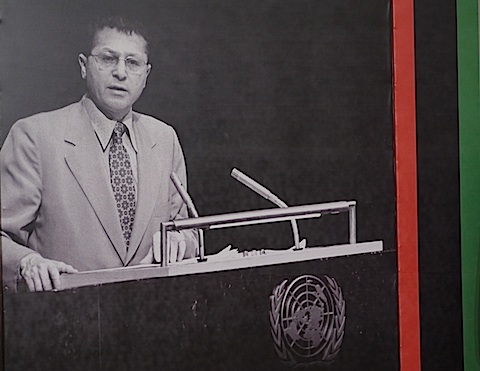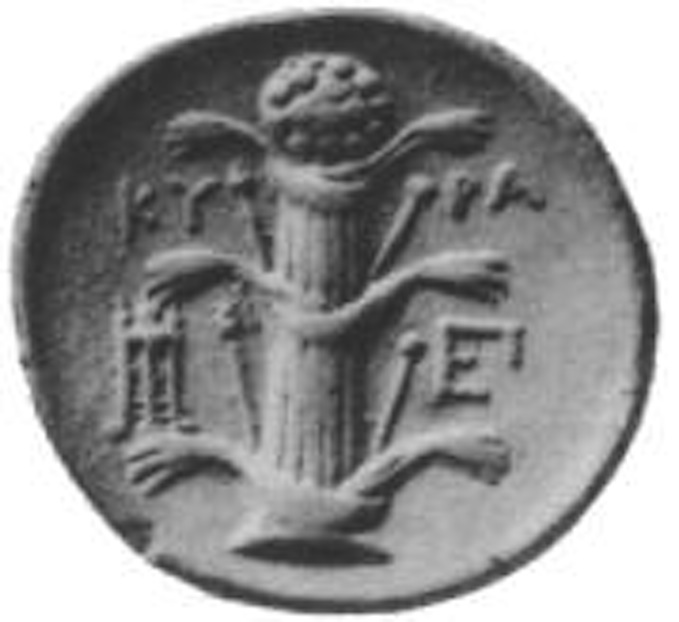By George Grant.

Tripoli, 2 December:
Leaders past and present gathered at the National Congress today for a service in memory of Mansur . . .[restrict]Rashid Al-Kikhia, the former diplomat and anti-Qaddafi activist who disappeared in Cairo in 1993.
Before a packed auditorium that contained the vast majority of the GNC, the prime minister and other leading political figures and dignitaries, speaker after speaker invoked Kikhia’s yearning for Libyan national unity and his commitment to achieving democracy and the rule of law through peaceful dialogue.
Given the ongoing divisions and insecurity still plaguing much of Libya, it was difficult not to believe that those in attendance had a message they wanted delivered to the rest of the nation, as they spoke before the winking red lights of a dozen television cameras.
“His story can tell the story of a generation of this homeland”, began National Congress President Mohamed Magarief, following a rendition of the national anthem and a moving video tribute.
“I am confident that his spirit will be happier when he sees us loyal to the principles and high values for which he sacrificed himself: the values of justice, freedom, democracy, tolerance, dialogue, and the co-existence of ideas and thoughts.”
Following Magarief’s lead, Prime Minister Ali Zeidan described Kikhia as “a human being in every sense of the word… [and] a Libyan patriot.”
The Prime Minister reminded his audience that Kikhia was amongst the first Arabs to found a dedicated Arab Human Rights organisation, and that in the spirit of tolerance, “he joined the opposition [to Qaddafi] and was for all Libyans, in spite of differences in points of view, ideas or ways of thinking.”
Misrata independent Congressman Juma Ateega, another of the speakers who had known Kikhia personally, described the fallen diplomat as a man from whom all Libyans should aspire to learn. “His belief in dialogue was deep… [and] he rejected violence”, Ateega said. “It was not a mere mask like with others who seek power. That the ends justify the means was not the way of Mansour.”
In his address, former Prime Minister Abdurrahman Al-Kib even proposed that the GNC’s main hall be named after Mansour Rashid Al-Kikhia.
Almost 19 years after his disappearance on 10 December 1993, Kikhia’s remains were finally discovered in a house in southern Tripoli last month. It is all but certain that he was abducted and murdered by members of the Qaddafi regime against whom he had spoken for so long.
Born to an influential Benghazi family in 1931, Kikhia graduated in law and political science from prestigious French universities. From the late 1950s up until the overthrow of the monarchy, he held various high-level positions within Libya’s royal diplomatic service.
As one of Libya’s most respected officials, he was twice appointed to high office under Qaddafi, as foreign minister from 1972-1973 and as Libya’s permanent representative to the United Nations from 1975-1980, but resigned both times on account of his unhappiness with the oppressive policies of the regime.
Throughout his career, Kikhia used his training as a lawyer to the service of Libyan and Arab human rights, and played a major role in the Qaddafi opposition movement, serving as head of the Libyan National Alliance following his resignation as UN ambassador until his eventual abduction 13 years later.
Kikhia’s remains were returned to his hometown of Benghazi today, Sunday, with a memorial service planned in Tahrir square tomorrow. [/restrict]








